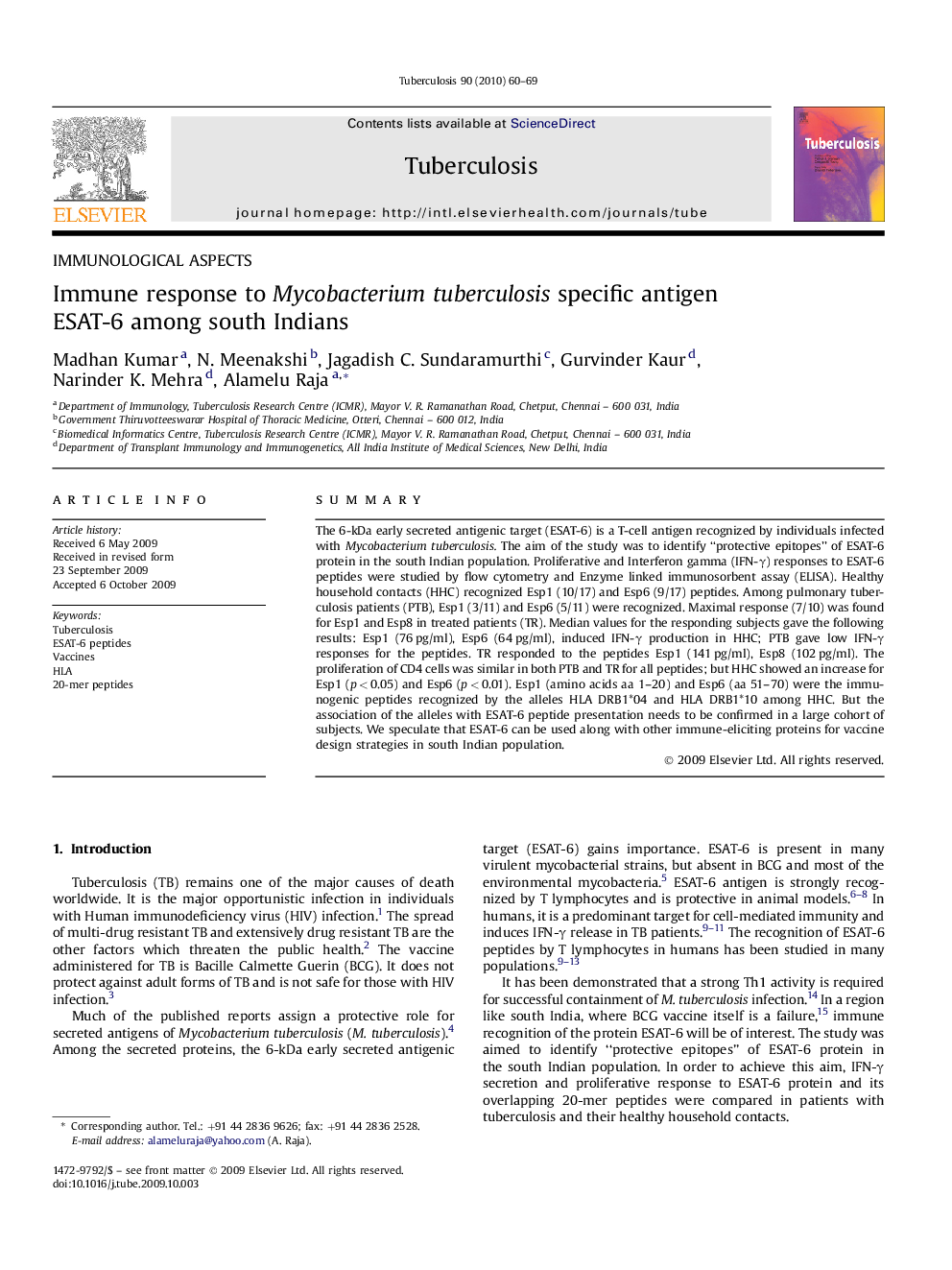| Article ID | Journal | Published Year | Pages | File Type |
|---|---|---|---|---|
| 2401702 | Tuberculosis | 2010 | 10 Pages |
Abstract
The 6-kDa early secreted antigenic target (ESAT-6) is a T-cell antigen recognized by individuals infected with Mycobacterium tuberculosis. The aim of the study was to identify “protective epitopes” of ESAT-6 protein in the south Indian population. Proliferative and Interferon gamma (IFN-γ) responses to ESAT-6 peptides were studied by flow cytometry and Enzyme linked immunosorbent assay (ELISA). Healthy household contacts (HHC) recognized Esp1 (10/17) and Esp6 (9/17) peptides. Among pulmonary tuberculosis patients (PTB), Esp1 (3/11) and Esp6 (5/11) were recognized. Maximal response (7/10) was found for Esp1 and Esp8 in treated patients (TR). Median values for the responding subjects gave the following results: Esp1 (76 pg/ml), Esp6 (64 pg/ml), induced IFN-γ production in HHC; PTB gave low IFN-γ responses for the peptides. TR responded to the peptides Esp1 (141 pg/ml), Esp8 (102 pg/ml). The proliferation of CD4 cells was similar in both PTB and TR for all peptides; but HHC showed an increase for Esp1 (p < 0.05) and Esp6 (p < 0.01). Esp1 (amino acids aa 1-20) and Esp6 (aa 51-70) were the immunogenic peptides recognized by the alleles HLA DRB1*04 and HLA DRB1*10 among HHC. But the association of the alleles with ESAT-6 peptide presentation needs to be confirmed in a large cohort of subjects. We speculate that ESAT-6 can be used along with other immune-eliciting proteins for vaccine design strategies in south Indian population.
Related Topics
Life Sciences
Immunology and Microbiology
Applied Microbiology and Biotechnology
Authors
Madhan Kumar, N. Meenakshi, Jagadish C. Sundaramurthi, Gurvinder Kaur, Narinder K. Mehra, Alamelu Raja,
